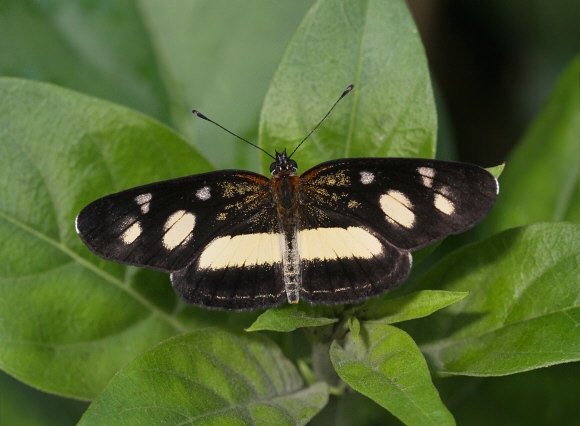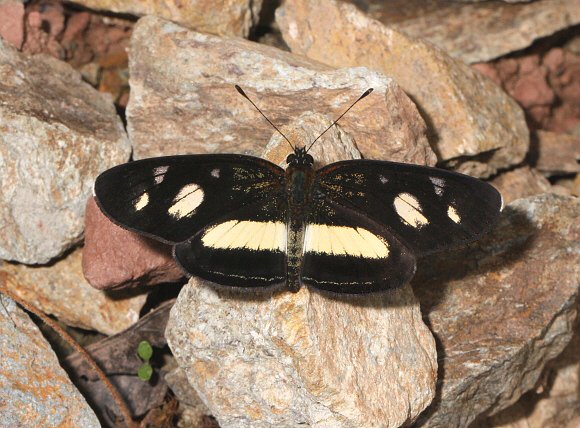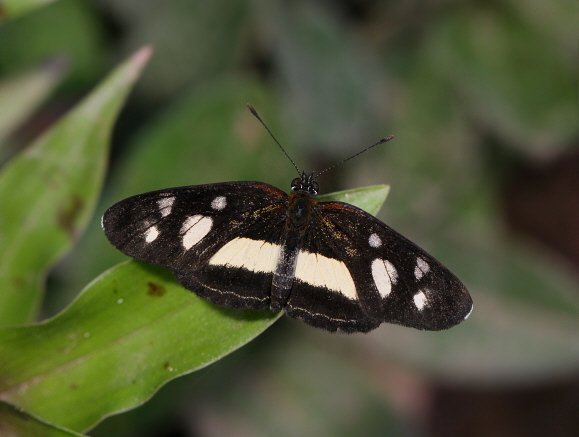
Introduction
The tribe Melitaeini is of worldwide distribution. It includes the Crescents and Checkerspots of North America, and also many familiar European species such as the Marsh, Spotted and Heath Fritillaries.
Eresia are closely related to Castalia, Anthanassa and Janatella, in fact that these genera can only be distinguished by microscopic examination of the male genitalia.
The 20 Eresia species fall into 2 groups. Some such as clio are black with bands or patches of white. Most however are strongly patterned in black and orange, and are regarded as Batesian mimics of toxic Ithomiinae. Eresia eunice for example bears a striking similarity to Ithomiines in the Mullerian “tiger complex”, including Mechanitis polymnia.
Eresia clio (also known by the invalid synonym Eresia clara) is found throughout most tropical and subtropical regions of Central and South America, from Mexico to Bolivia.
Habitats
This species is a common and widespread butterfly found at altitudes between 100-800m, where it occupies forest edge habitats where there is a profusion of low vegetation.
Lifecycle
I have no information specific to clio but the lifecycle is probably similar to that of ithomioides, in which the eggs are cream coloured, and laid in untidy batches of up to 70 beneath leaves of Pilea (Urticaceae). At least one other Eresia species – coena, oviposits on Justicia (Acanthaceae). The larva of ithomioides is dark green with orange spikes and white dots along the back. The head and legs are orange. Its pupa is olive-brown, shiny, and suspended by the cremaster from stems.

Adult behaviour
Both sexes nectar at flowers, but the butterfly is more often seen when males settle in hot sunshine to imbibe moisture from sandbanks, river beds, drying pools or peccary wallows. Often dozens can be found swarming in amidst aggregations of Telenassa, Tegosa and other Eresia species.

